‹ All blog posts
In the era of digitalized automotive distribution, dealerships and garages are massively integrating artificial intelligence to transform the customer journey, optimize sales, and enhance after-sales services. This article explores ten concrete use cases, illustrating their benefits, performance, potential, and the main commercial players.
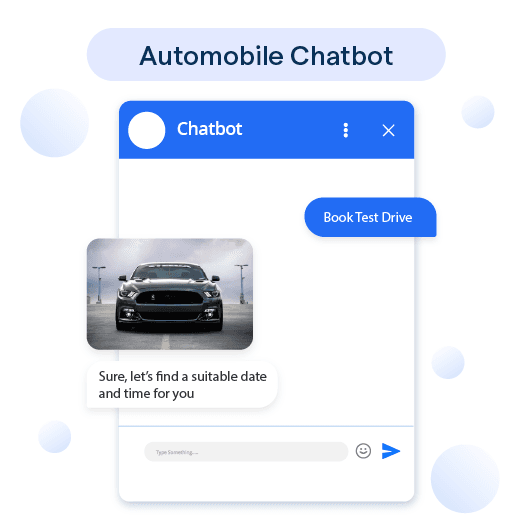
Chatbots first became widespread on websites and mobile apps, enabling customers to interact continuously with support across all industries, including automotive. Solutions like Intercom made it possible to implement workflows ranging from simple routing of requests to advisors, all the way to full resolution without human intervention.
In dealerships, these virtual agents are now a strategic lever: available 24/7, they provide information on models, suggest financing options, schedule test drives, and book appointments. The impact is clear: a 30% increase in qualified leads, a 20–40% reduction in cost per contact, and higher customer satisfaction thanks to instant online presence. In France, Meetdeal is an example of a solution specialized in automotive.

Voice bots emerged more recently with the rise of LLMs and generative AI, proving especially valuable for dealerships: they manage inbound and outbound calls around the clock, qualify leads, schedule test drives, follow up on appointments, handle after-sales, and even chase payments. These intelligent assistants significantly improve response rates, reduce no-shows, and filter out inactive contacts.
Operational efficiency is notable: deployed in just weeks, these systems offer ROI in 3–6 months by reliably automating repetitive tasks, integrating seamlessly with CRM/DMS, and boosting the number of qualified leads. Accuracy for lead qualification reaches 85–95%, optimizing conversion times.
Among available solutions, French company Lineshift.ai stands out. Specialized in automotive, it offers a scalable voice bot capable of understanding sector nuances, holding natural conversations, and reducing the burden on sales teams. By adopting such technologies, dealerships modernize phone interactions, making them more proactive, reliable, and profitable.
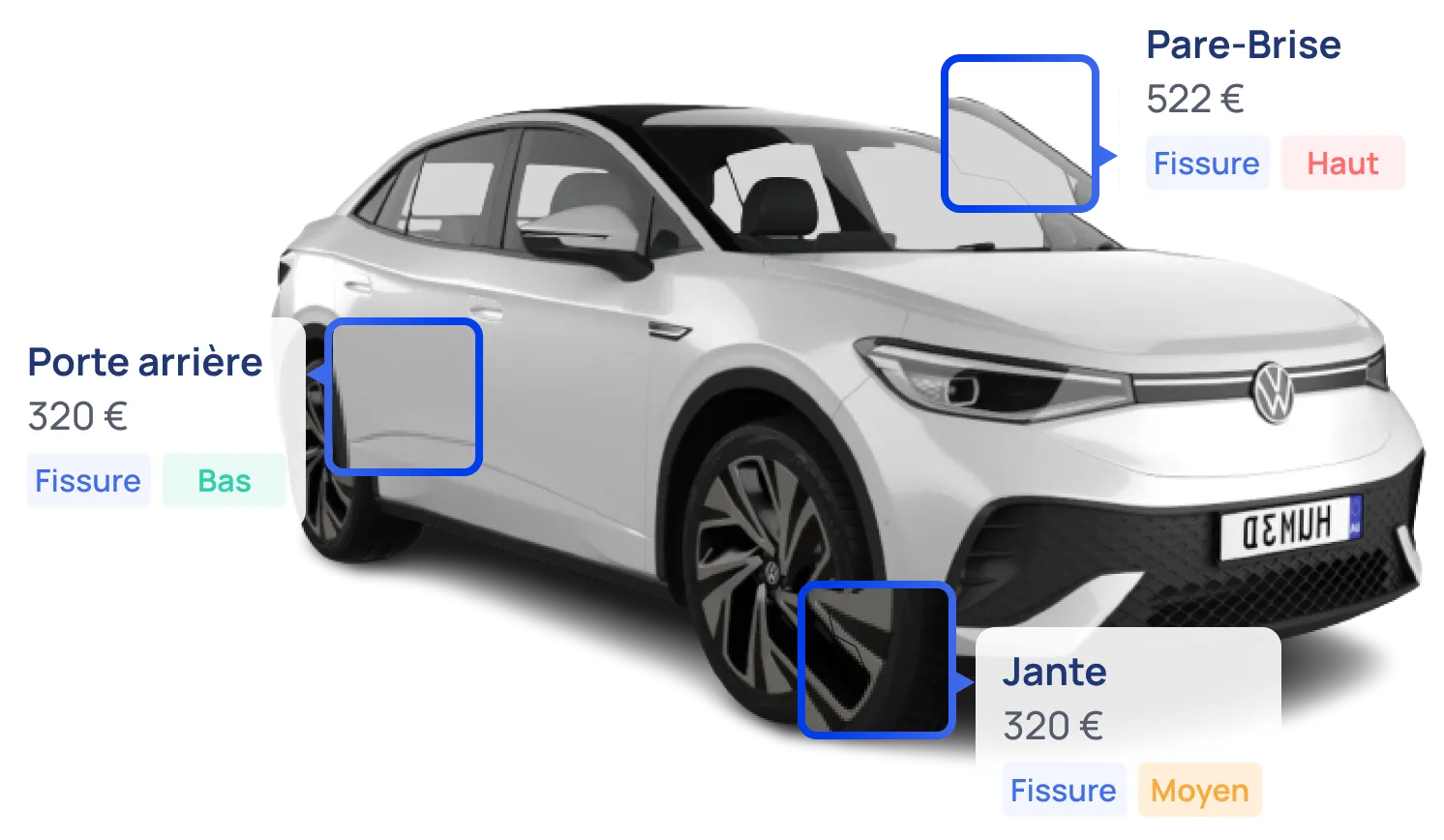
Automated vehicle inspection systems use arches equipped with high-resolution cameras, underbody sensors, and AI to scan an entire car (bodywork, tires, leaks, undercarriage) in 20–30 seconds, detecting flaws as small as a tenth of a millimeter (source). UVeye, an industry leader, achieves 96% detection accuracy versus only 24% in manual inspections, scanning over 500,000 vehicles monthly across 300 dealerships (source).
In France, ProovStation has developed AI-powered drive-through inspection stations, already deployed at scale across Europe, enabling dealers and logistics operators to standardize and accelerate used car assessments. Another example is Carviz, which offers a mobile AI app guiding an inspector (or the customer) via video: in under 5 minutes it analyzes bodywork, interior, engine (with sound capture), estimates repairs, and generates a full report instantly.These technologies deliver transparency, speed, and trust: significant time savings, fewer after-sales returns, and stronger sales arguments. Dealerships gain a decisive advantage in valuing used cars with rigor and efficiency.

AI technologies are radically transforming how vehicle listings are visually presented. Tools like CarCutter and Spyne AI automate photo cleaning, background removal, uniformization, and even create virtual showrooms or 360° images for consistent, high-quality visuals at scale. CarCutter reports its clients see a 52% increase in ad click-through rates and a 21% boost in conversions when enhanced visuals are used (source).
Some tools go further, generating full video tours of vehicles, such as Phyron AI or Drivee Ai, to generate even more engagement.

Virtual showrooms allow customers to explore vehicles in immersive environments—often 3D or augmented reality—customize trims, compare colors and options, and visualize interiors and exteriors. Sales avatars (digital characters) guide users, answer questions, and explain options, acting almost like a human salesperson but always available.
For example, spoon.ai deploys interactive 3D avatars that strengthen brand engagement with emotional and immersive experiences (source).
Key figures: virtual showrooms can increase conversion rates by up to 57% in retail through better product visualization and reduce returns by about 40% (source)

Stock optimization and dynamic pricing solutions leverage AI to forecast demand, adjust prices in real time based on the market, and automate stock levels (source). By analyzing seasonal trends, competitors, and buying behavior, they prevent stockouts and overstocks, a major issue costing dealerships an average of $3.5M annually (source).
Dynamic pricing avoids excessive discounts while maximizing profitability, with net gains of about +10% on average basket size.
Seez is one notable solution, providing real-time competitive monitoring, dynamic pricing, and marketing campaign optimization. These systems make dealership management more agile, profitable, and aligned with market expectations.
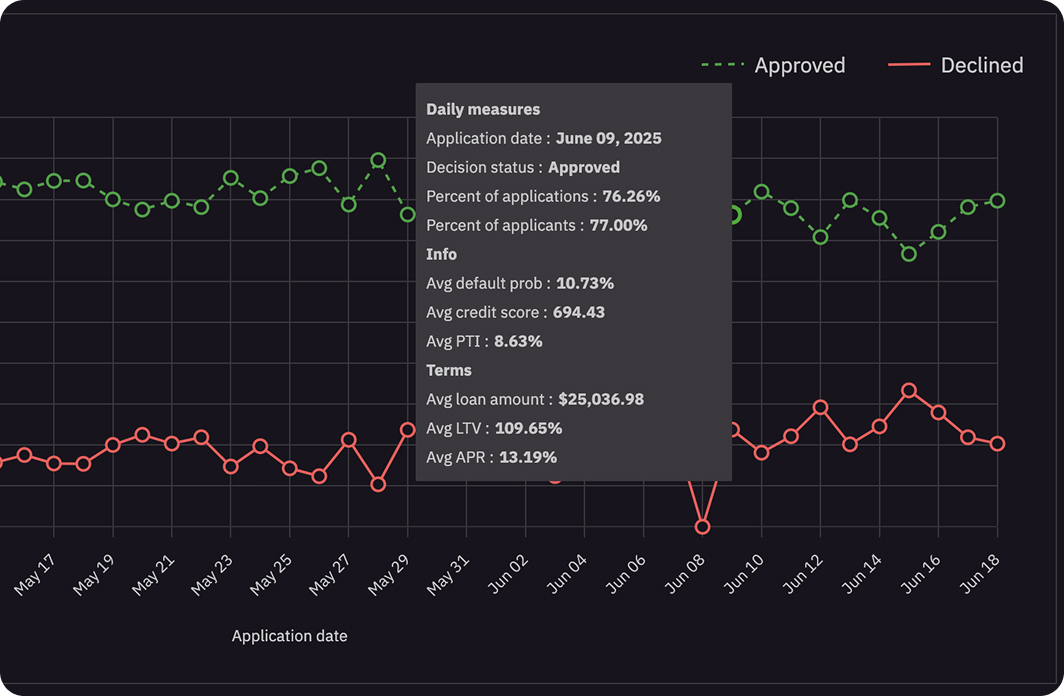
AI is revolutionizing auto financing, supporting customers from pre-qualification to selecting the best offer (leasing, loan, hire-purchase). Algorithms instantly assess creditworthiness, personalize monthly payments, and speed up application approvals, reducing delays and operational costs.
Karus.ai, for example, trained its models on more than 20 million auto loan outcomes to optimize underwriting, pricing, and risk management for financial institutions and automaker captive lenders. The result: faster, more reliable processes and a smoother customer experience (source).
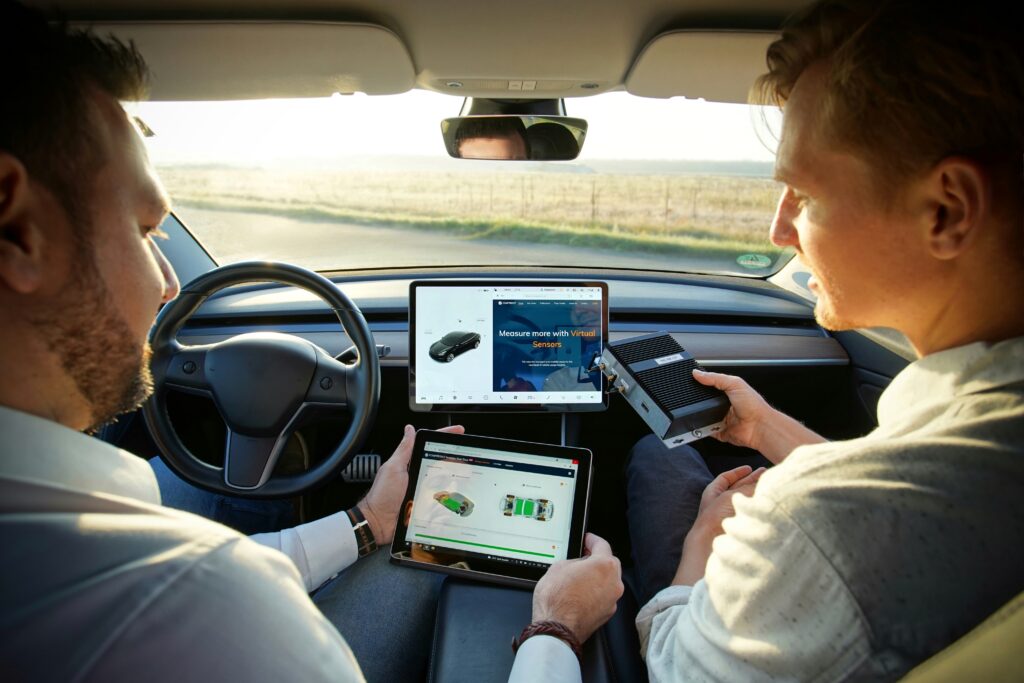
Predictive maintenance systems use onboard sensor data (telematics, OBD, service history) to anticipate breakdowns and schedule interventions, avoiding unexpected downtime (source). The global market, estimated at $48B in 2024, is growing at 9–18% CAGR and could exceed $100B by 2032, underlining its strategic importance (source).
Benefits include reduced maintenance costs, improved vehicle reliability, time savings for dealerships, and stronger customer satisfaction. Examples include Compredict, a Renault Group partner aiming to equip 10M vehicles with virtual sensors by 2030, and Stimio, a specialist in IoT and connected maintenance.
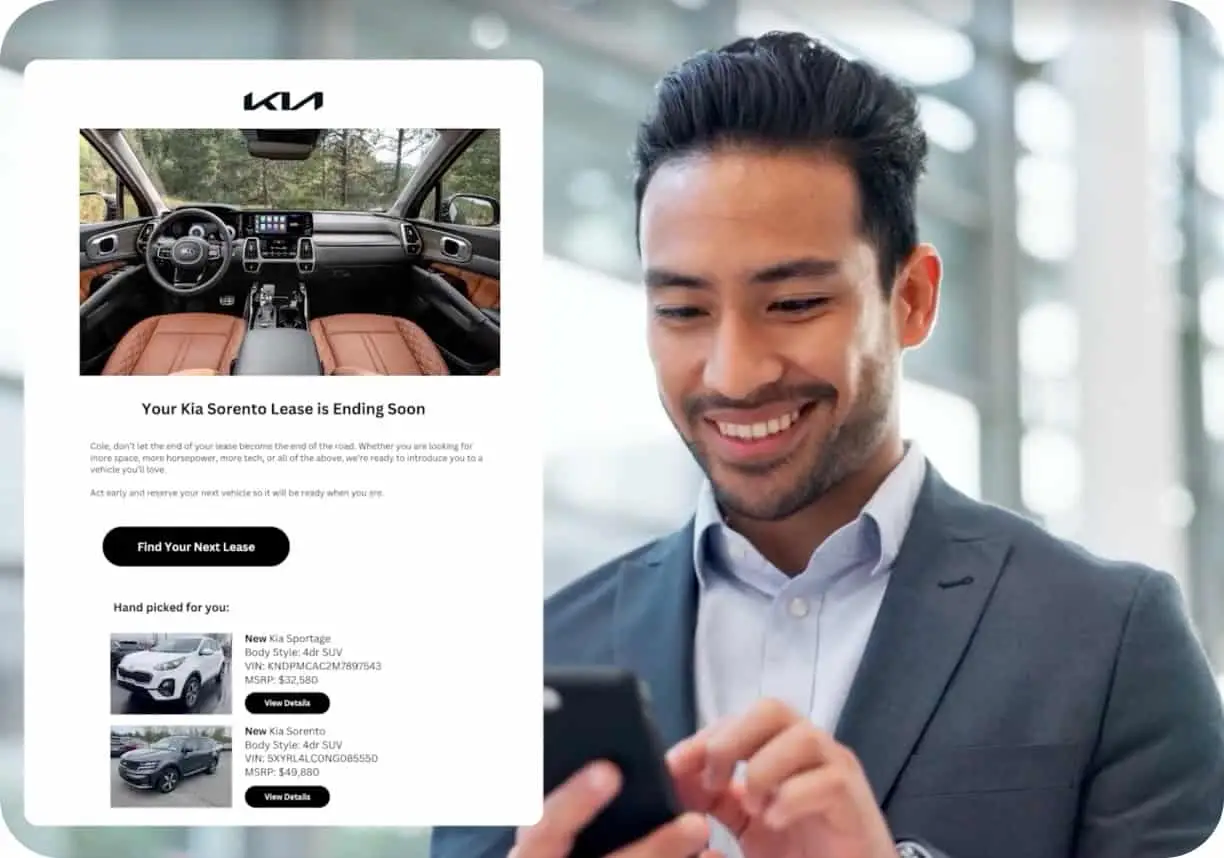
These AI tools analyze online behavior and purchase history to deliver hyper-personalized offers (vehicles, services, financing) at the right moment (source). Some dealerships see up to +27% increase in converted online leads and 24% more recurring customers.
AI identifies high-potential segments, runs targeted campaigns with tailored messaging, and optimizes timing using consumer insights.
Impel Analytics integrates with DMS/CRM data to recommend automated marketing actions (after-sales follow-ups, personalized offers) (source). In France, Kameleoon personalizes customer journeys and runs campaign tests to maximize conversions (source).
By combining these technologies, dealerships transform their marketing into a more precise, responsive, and effective engine.

AI is also shaping vehicle design and production. Generative engineering models quickly create design concepts, optimize parts, and run aerodynamic simulations or complex engineering scenarios.
French startup AugurCo offers an AI-assisted simulation platform that reduces design cycle computation times by up to 80%, generating internal solvers to speed iterations (source). At the Simulation & AI event (SIA with Renault Group, Altair, Stellantis, etc.), demonstrations showed AI generating initial designs for electric motors and optimizing performance upstream, greatly reducing R&D timelines (source).
These tools shorten prototyping times, cut material waste, and enable unprecedented creativity by generating thousands of design variants in minutes instead of weeks.
In a landscape where digitalization, electrification, and global competition are redefining the rules, AI is no longer optional—it is a strategic lever to activate now. Observed results—up to +70% conversion and +20% after-sales activity—show the immediate potential for dealerships that take action. The priority is no longer to experiment, but to intelligently integrate these solutions into core processes (CRM, DMS, ERP) to build a unified, agile, and sustainable customer experience.
Lineshift is a startup specialized in voice AI for the automotive industry. With unique expertise in agentic integration with industry business systems, it supports dealership groups and manufacturers in deploying conversational agents that streamline customer journeys and maximize operational performance.